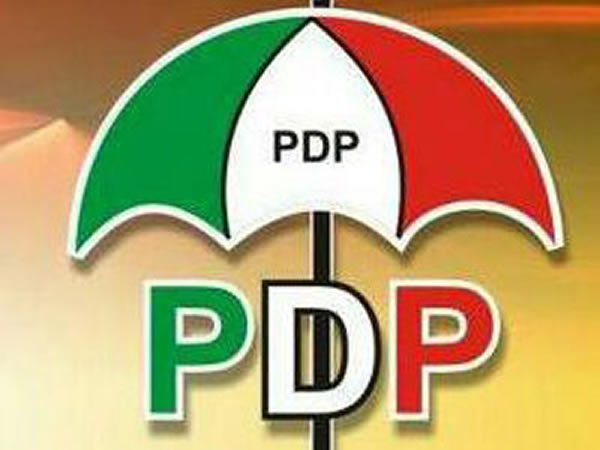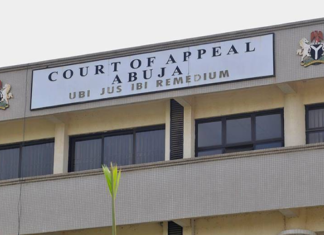By Uche Ugboajah
The bashing of the Igbo-speaking people of the Southeast of Nigeria has taken a frenetic tone and frequency in national political discourse after the 2015 general elections. Since the All Progressives Congress (APC), defeated the Peoples Democratic Party (PDP), widely supported by Igbos in the general elections, all manner of suggestions have arisen to portray Igbos as lacking in strategy, foresight, and too obsessed with supporting the former president, Dr. Goodluck Jonathan. The first salvo was the widely reported lecture allegedly delivered by Nobel Laureate, Professor Wole Soyinka, in faraway United States of America accusing Igbos of being too greedy and opportunistic with the Jonathan Presidency, which blinded them from the reality of 2015 general elections. Thankfully, Soyinka disowned that report. Since then, many others have sought to make Igbos feel guilty of their vote choice in 2015 presidential election. They are accused of voting for PDP in 2015 against political wisdom simply because of former the former president, Jonathan.
- For those who miss the point, all the warped analyses on the voting behaviour of the Southeast in the last general elections serve the purposes of providing a paradigm for justifying the exclusion of Igbos in the Southeast from key decision making in the country. Unsurprisingly, the first justification came from President Muhammadu Buhari himself with his theory of ninety-seven per cent versus five per cent in making political appointments and providing services. Even the President’s interviewers in the United States could not hide their shock over that statement coming from a President elected in a democratic setting, whose constituency is completely national; a president who has sworn an oath to protect the Constitution of his country – not that of his political party; a president who said at his inauguration that he “belonged to no one but belong to all”.
Those now interrogating the political choice of the Southeast and castigating them in such a manner as to cheapen them perhaps do not understand the variables or factors that influence vote choice the world over. These factors include, party identification, issues in the election, personality, class, religion and ethnicity. And the most important factor is party identification. Quite contrary to the story being peddled around now by the ruling government trying so hard to link the strong support the Southeast for the PDP to former President Goodluck Jonathan, the truth is that since the return of democracy in 1999, the Southeast has strongly identified with the PDP. And the rallying force behind this phenomenon was Chief Alex Ekwueme, the Second Republic Vice President of the country. Ekwueme, it was, who traversed the contours of Igboland as the whistle for this Republic was about to be blown mobilizing, cajoling and preaching to his normally apolitical kinsmen, especially the intelligentsia to join politics and identify with the PDP which he was a leading founder. Not surprisingly, the Nwodos, Obiohas, Ahambas, Ugwuhs, Echeruos, Nwodos, ABC Nwosus and many other members of the intelligentsia were the early members of the PDP from the Southeast. As a matter of fact, it is safe to posit that any notable politician from the Southeast irrespective of where the person is now, started out as a PDP member! To now begin to suggest that the Southeast is predominantly PDP because of Jonathan is patently false and anti-history.
That being the case, why is it difficult for some people to understand that the Southeast voted for Goodluck Jonathan in 2015 first because, he represented the party they have consistently identified with? In 1999, the Southeast voted for PDP. They did same again in 2003, 2007, 2011, and reconfirmed that in 2015. Yes, they voted for Jonathan in 2015 against President Buhari, but how can anybody forget that the same people had consistently rejected Buhari from 2003? It is not hidden that the personality of Jonathan appeals to Igbos more than that of President Buhari. And the issues canvassed by Jonathan clearly appealed more to the Southeast people that had apparently weighed their opportunities under the his Presidency against the promises of Buhari, especially against the background of his actions or inactions as military head of state and came to the conclusion that as a people their interests would be (rightly or wrongly) served better under the Jonathan presidency. And when you add the other factor of ethnicity and religion, it would appear that Igbos were more rational in their vote choice than their nascent critics.
It is immaterial that Buhari won the election. The important thing is that the Southeast people voted their conscience, and that is what democracy is about. It is a pity and part of the tragedy of Igbo politics that people like Senator Chris Ngige goaded on from outside Igboland are now typically doing a provoking victory dance in the face of Igbos. They are accusing Igbos of not being “strategic” enough; they are blaming them for “putting all their eggs in one basket”; they are jeering at them for not seeing “politics like business investments”; they are even justifying the marginalisation of Igbos in the national scheme of things because they chose to uphold the democratic tenets of voting according to their conscience. Just as the Hausa-Fulani in the North were rational in voting for President Buhari, which they have been consistently doing since 2003, the Igbos were convinced in their vote choice in 2015. Interestingly, no northern politician had come out to insult their people for voting against Jonathan in 2011. Instead they politicked hard to even benefit more than those who massively voted for the former president in 2011. Even then, Igbos are not asking President Buhari to favour them or to be treated specially; they are simply asking to be treated fairly. Why is this difficult for somebody like Senator Ngige to understand?
With the 2015 election lost and won, it is all too clear now with the policies of the Buhari government, that the Southeast, contrary to the suggestion of Senator Ngige and his co-travellers, were indeed rational in their voting behaviour. More and more with every passing day, the fears of Igbos of a Buhari presidency are getting real as the country is getting increasingly divided. Calls of secession, restructuring and other incendiary remarks are no longer spoken in hush-hush tones but are now loudly shouted from the rooftops. From 1999 there have been presidents and the Biafra issue has never taken the centre stage, why is Biafra on the front burner of national discussion now? Is there something about the style of the Buhari government that is making separatist agitations an appealing option? Unfortunately those in government are rather pointing fingers without looking at the man in mirror.
It is sad that Senator Ngige sees the conditions of Igbos under President Buhari as “perceived marginalisation”. Yet the truth is that at no other time in the post-war Nigeria have the people of the Southeast been this marginalised as citizens – not even under the military. If Ngige and his like have any doubt, then let them take a look at the 2015 Independence Cake- Cutting Photograph, one simple picture that tells a huge story. In that picture, there are about eight hands cutting the symbolic Nigerian Cake; and there is no single Igbo hand in that Picture. This has never happened before!
Unsurprisingly, self-interested Igbo politicians of the long-throat type have started jumping into the APC; some of them after being governors for eight years and senators for as many years under the PDP, ostensibly to relaunch the Region into the “mainstream” of Nigerian politics. These jokers in their blind ambition are beginning to see the APC as a quicker vehicle to arrive at the, governorship, senatorial ambitions and the Igbo Presidency destination, whatever that means. What these greedy politicians from the Southeast obsessed with the idea of party in power must understand is that recent history has shown that membership of the ruling party no longer confers any advantage in a free and fair election. The advantage comes from strategic building and a sense of partisan consistency. Senator Bola Ahmed Tinubu has only confirmed what has been known long ago that you need a strong alliance with other regions to achieve electoral success at the national level given the plural nature of the Nigerian state. And to be accepted as a credible and trustworthy alliance partner, Igbos must show a consistent pattern of political behaviour. The mercantilist idea of seeing politics as investment as propounded by Ngige must give way for the philosophy of politics as service. For as long as the wider Nigeria continues to view Igbo political elite as cheap and always driven by pecuniary interests and mere crumbs off the master’s table, no meaningful progress is possible in their politics. Igbos have shown that they are PDP and they can achieve whatever goal they set for themselves under that umbrella with sincerity of purpose and commitment. They owe no apologies to anybody for voting PDP and Jonathan!
*Ugboajah, a political scientist, writes via *protected email*













